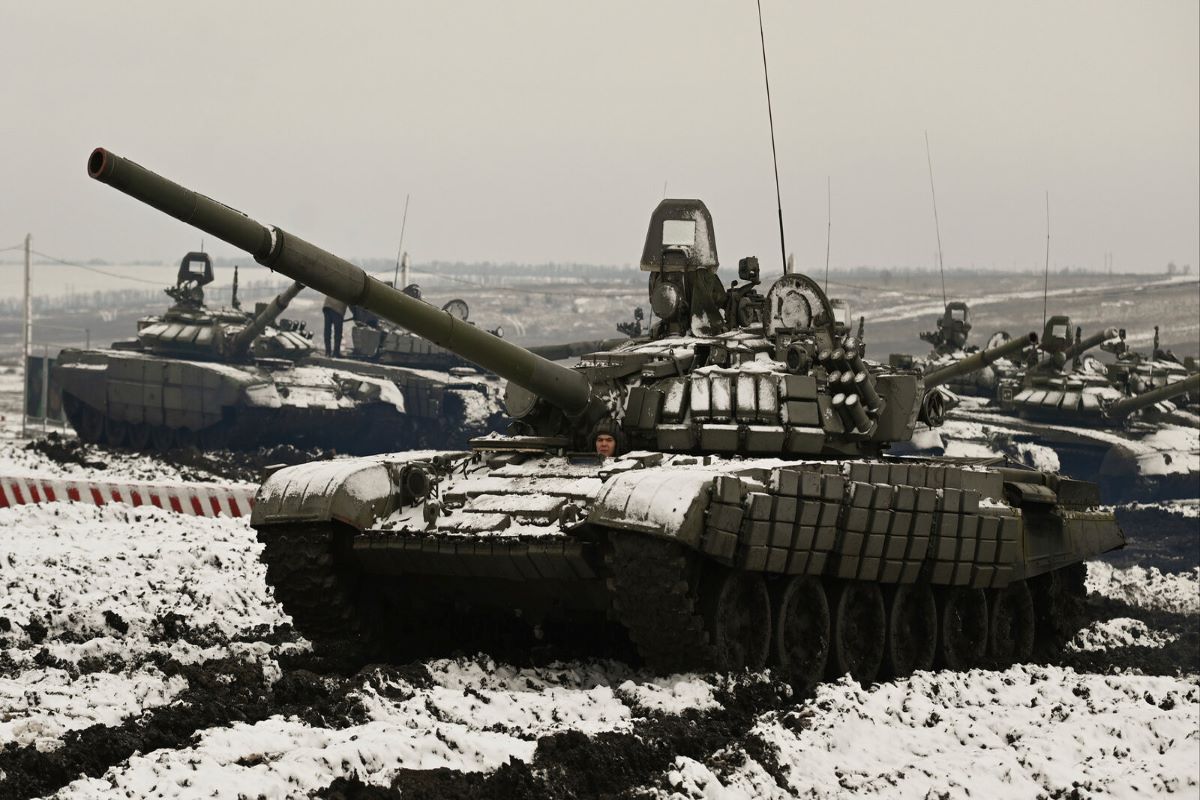Trump Unleashed
President Donald Trump’s first address to the US Congress in his second term was not just a policy statement ~ it was a declaration of dominance.
After 23 years at the helm, perceptions of weakness are the last thing Putin is willing to tolerate. After all, it was largely to reverse the trajectory of post-Soviet Russia’s frailty that he effectively seized power at the turn of the century.

(AP file photo)
Barely a day after the prospect arose of a Russian-US leaders’ summit to thrash out their differences over security arrangements in Europe and the Ukraine situation in particular, Vladimir Putin escalated the mounting tensions by formally recognising the independence of the selfdeclared ‘people’s republics’ of Donetsk and Luhansk. He immediately followed it up by ordering ‘peacekeeping’ Russian troops into the two regions. That suggests all bets are off, and it’s likely some form of Western sanctions will have been triggered by the time this comment is published.
It does not necessarily follow that largescale hostilities are now inevitable, but the probability of conflict has been enhanced. Perhaps the biggest question is whether it will be contained within the Donbas region of eastern Ukraine or extend farther across the country, and or even beyond. It is a dreadful prospect.
Advertisement
The worst-case scenario is the risk of British Prime Minister Boris Johnson’s warning about Europe becoming embroiled in a maelstrom of violence of a variety not witnessed since 1945 turning into a self-fulfilling prophecy. The concept of never letting a crisis go to waste has worked admirably for Johnson — his potentially illegal indiscretions at Downing Street are out of the headlines amid almost daily outbursts of neoChurchillian outrage, even as his foreign secretary makes a fool herself on the international stage.
Advertisement
They are playing a screeching second fiddle to Uncle Sam, whose undiplomatic declarations may well have helped to goad Putin towards precipitate action. If Joe Biden had devoted half as much of his meagre energies to his administration’s domestic legislative agenda on a range of key issues — from diminishing voting rights to social security and climate change initiatives — the Democrats might have made some headway. Instead, the US president emerges at least once a day from his stupor to remind the world that Putin is poised to launch a full-fledged invasion at any moment, and that the consequence will be crippling Western sanctions.
Even a date was picked: Armageddon was supposed to kick off last Wednesday. And the diplomatic skills of Secretary of State Antony Blinken are not particularly superior to those of his UK counterpart Liz Truss. The constant barrage of dire prognostications made any kind of backing down by Putin less likely, given it would instantly have been trumpeted as a triumph for Western deterrence, and a reminder of the Russian leader’s weak hand.
After 23 years at the helm, perceptions of weakness are the last thing Putin is willing to tolerate. After all, it was largely to reverse the trajectory of post-Soviet Russia’s frailty that he effectively seized power at the turn of the century.
His predecessor was in no position (or condition) to challenge the expansion of Nato to Russia’s doorstep. Boris Yeltsin was beholden to the US for helping to sustain him in power — and possibly oblivious of the extent to which his champions in the West had helped to destroy Russia’s economy — through self-serving ‘assistance’ and neoliberal ‘advice’ rather than sanctions.
Putin wasn’t initially hostile to the West — remember when George W. Bush gazed into his eyes, allegedly glimpsed his soul, and claimed to be satisfied with what he saw? But the Russian leader’s personal predilections as well as the confused and occasionally humiliating Western reaction to him — after his devastating assault on Chechnya was applauded — have led to a kind of new Cold War. That’s partly because the original Cold War concluded with an outburst of western triumphalism — and hardly any sign of the ‘peace dividend’ that was supposed to follow.
Instead, the West was desperate for other enemies to defeat. Saddam Hussein offered a target, followed by the war on an abstract noun, ‘terror’, which included elements the West had enthusiastically nurtured not long before. Once that threat receded, Russia and China have returned to the radar as old/new bêtes noires, offering a fresh lease of life to the indispensable military complex. This is not to endorse the game Putin and Xi Jinping are playing, but merely to point out that the hostility they encounter day in and day out is unlikely to improve their behaviour.
Putin’s distortion of Ukraine’s past in his speech on Monday, effectively denying it an identity outside Mother Russia, reflects precisely the kind of ‘Great Russian chauvinism’ Vladimir Lenin warned against 100 years ago from his deathbed. Ukraine, like all former Soviet states, was shaped — including territorially — by its decades-long role in the experiment known as the USSR. It is perfectly understandable why Russia would resent being hemmed in on its western flank — twice violated in the 20th century — by a hostile military alliance. But tinkering with the political geography on its periphery is hardly the answer. Now is the time to intensify, rather than abandon, diplomacy.
(Dawn/ANN)
Advertisement